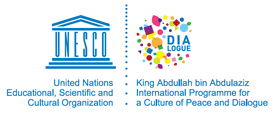DURATION: 2 HOURS
KEY TOPICS
- Freedom of the press, freedom of expression, freedom of information and infoethics
- Codes of ethics, codes of practice and global values in the newsroom: guidelines for journalists and information professionals
- Journalistic ethics in news gathering and processing (ethic committees, ombudsman, independent press councils/press complaint commissions)
- Press freedom advocates and media watchdogs
- Rights and responsibilities of citizens: connecting the journalist and the citizen
- Citizen reporting and user-generated content
LEARNING OBJECTIVES
After completing this unit, teachers will be able to:
- describe the universal principles of freedom of the press, freedom of expression and freedom of information, and their implications for news reporting
- analyze how ethics applies to the practice of journalism and information professionals at the personal, professional and global levels
- appreciate the role of press freedom advocates and media watchdogs in pursuing and protecting press freedom and responsibility
- explain the corresponding rights and responsibilities of citizens as part of the loop in the practice of journalism and information professionals; and
- understand and analyze citizen reporting or the evolving role of citizens or nonprofessional journalists as active participants in generating media content and in the democratic process of public debate
PEDAGOGICAL APPROACHES and ACTIVITIES
In the end, journalism is an act of character.”
— Bill Kovach and Tom Rosenstiel, The Elements of Journalism
If the state seeks to regulate the media it will interfere with the independence of journalists and their ability to cover events in the way they deem best. But the media are social actors who can exert great power in society so, in order to protect their freedom from regulation and control, it is usually believed that journalists need to regulate themselves by adopting codes of ethical conduct or setting out professional guidelines on how stories or events should be covered.

